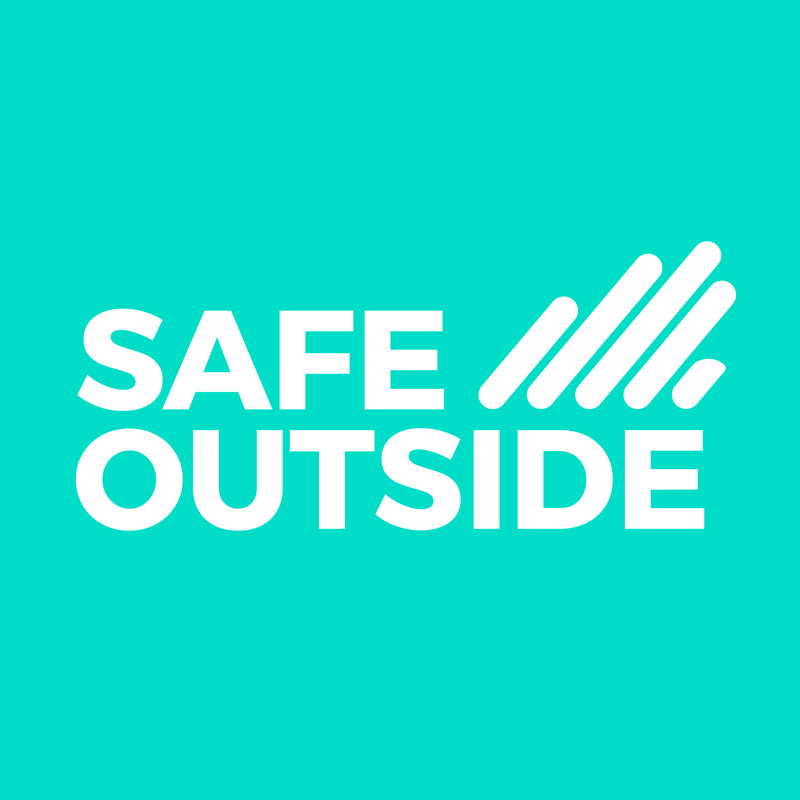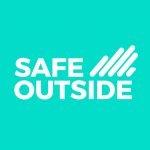#SafeOutside Day of Action and Support for Climbing and Outdoor Supports Survivors and Addresses Sexual Harassment and Sexual Assault
August 27, 2018

More than three dozen Climbing and Outdoor organizations come together
(Seattle Wash., Aug. 27, 2018) – Today, the climbing and outdoor communities join together in a united front to support survivors and address sexual harassment and sexual assault (SHSA) through #SafeOutside, an independent grassroots initiative designed to combat SHSA. Climbing and outdoor organizations around the world have joined forces to collect data, drive conversation, share best practices and address the issues. In addition, #SafeOutside is releasing the results from one of the largest surveys to date on SHSA and a toolkit to help individuals and organizations across all industries combat SHSA.
Between April and July of 2018, #SafeOutside conducted a series of surveys to collect data about SHSA in the climbing community. The survey content was designed by Dr. Callie Rennison—a nationally recognized criminal justice professor; Charlie Lieu—an MIT trained data scientist and operational strategist; and Alpinist editor-in-chief Katie Ives, with several goals in mind. First, to assess the extent to which SHSA is a problem in the climbing world. Second, to understand—as best as possible—the nature of these experiences. Finally, to collect data to inform, develop or refine policies to reduce incidents, increase awareness, and provide better support systems for all climbers.
“As a climber, I am proud that the community has come together to address sexual harassment and sexual assault. SHSA is a violent act; it is no different than being hit in the head with a hammer or shot at and it is experienced by both men and women,” said Dr. Callie Marie Rennison, co-founder of #SafeOutside, seasoned researcher in sexual misconduct and professor of criminology in the School of Public Affairs at the University of Colorado Denver. “My hope is that when people hear these results from the survey and see the toolkit, they can feel empowered to step in and intervene and be a part of the solution. We all need to come together to stop it and say no more, we are not tolerating it.”
SHSA is a societal issue, and the data collected from the survey are in line with previous surveys in the general population. In this survey, nearly one in two women and one in six men described interactions that could be classified as SHSA (e.g., unwanted touching, forced kissing, etc.) while engaged in a climbing activity. (Some respondents who answered yes to having experienced interactions that could be classified as SHSA answered no when asked simply whether they have experienced SHSA – this result is similar to ones from general population surveys that indicate underreporting of SHSA). Survey results also showed that individuals changed the way they engage in climbing, including quitting the activity altogether, because of SHSA.
“Since we launched #SafeOutside, we have had a number of organizations outside of the climbing community reach out to us for help in starting their own program to address sexual harassment and sexual assault,” said Charlie Lieu, founder of #SafeOutside. “We are thrilled to unveil a toolkit that anyone can use as a roadmap. Our ultimate goal is to take the work of #MeToo one step further, and create an actionable framework for us to come together as a society to combat SHSA.”
The #SafeOutside toolkit is based on years of research and learnings, and is available today for anyone to utilize. It is an evolving toolkit and the group expect to release periodic updates to reflect changing needs and best practices. The toolkit currently includes:
- Overview on combating sexual harassment and assault
- Tools for data collection (survey and instructions)
- Best practices for policy and procedures (templates and guidelines)
- Educational materials (what is SHSA, bystander intervention, consent)
“We have been overwhelmed by the participation of so many climbing and outdoor organizations within the U.S., as well as by the worldwide support,” said Katie Ives, Alpinist editor-in-chief, who helped design and distribute the survey.
More information on #SafeOutside, the toolkit, the full report of our survey findings and organizations supporting this movement are available at https://americanalpineclub.org/safeoutside. An in-depth analysis of results and survey methodology is available at http://www.alpinist.com/doc/web18c/wfeature-shsa-survey-results
About #SafeOutside
#SafeOutside is an independent grassroots initiative designed to combat sexual harassment and sexual assault (SHSA). Organizations from climbing and outdoor communities around the world have joined forces to collect data, drive conversation, share best practices, provide press coverage and address the issues. More information about #SafeOutside is available at https://americanalpineclub.org/safeoutside.






